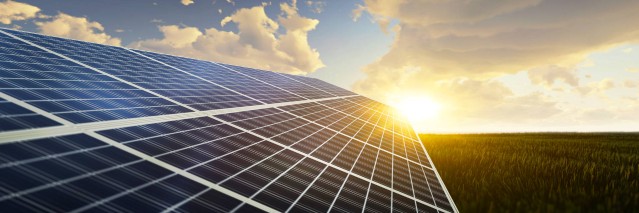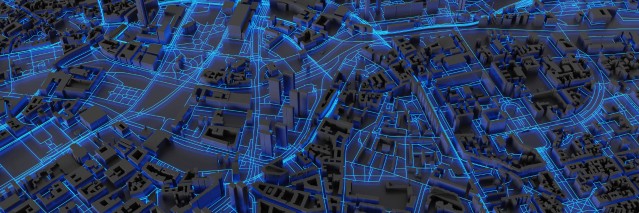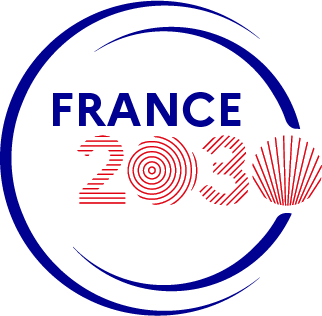(You will find all E2S research projects on the institutional website of the University of Pau and Pays de l’Adour)

“Organizing energy subsidiarity at the territorial scale” UPPA Interdisciplinary Mission
Batteries For the Future
The Raise 2024 Hub aims to develop new advanced battery systems using solid electrolyte technology. More efficient, less expensive and safer than Li-ion batteries, these revolutionary batteries are intended for the electric vehicle sector and the renewable energy storage sector.
Raise 2024 is built around 3 academic laboratories with the participation of 2 major international industrial groups: Arkema and Total Saft. It totalizes 50 researchers, PhD students, postdoctoral researchers, engineers and technicians.
CO2 Enhanced Storage
Global warming is one of the major concerns of humankind today. In order to reduce the concentration of greenhouse gases, which include CO2, one possible solution studied by Fabrizio Croccolo and his team is to inject large amounts of CO2 into deep saltwater reservoirs.
Funders: E2S UPPA, Geological and Mining Research Bureau BRGM, National Center for Space Studies CNES, TOTAL Exploration&Production R&D
Solar Energy Production Inspired by Photosynthesis
The InterMAT (Interface Matters) international chair studies interfaces in thin film photovoltaic cells for the production of solar fuels from CO2.
This chair hosts Emilio Palomares, ICREA Research Professor at ICIQ in Catalonia, Spain.
Large-scale Composting of Organic Waste
The “Trognon” project consists of a small, low-energy mechanical composting platform for organic waste from large local producers (caterers, supermarkets, collective restaurants, etc.). The compost can then be sold to professionals and individuals.

Marine Materials For Health Purposes
The MANTA Chair explores marine compounds with a scientific approach focused on biomimicry, in order to address societal problems related to human health and the degradation of the marine environment.
The team, led by Susana Fernandes, develops techniques for the extraction of molecules and biopolymers from marine products, with the aim of transforming them into porous structures, films, hydrogels and composite materials for cosmetic, biomedical and packaging applications.
The impact of these compounds on human health and on aquatic ecosystems is also studied.
Better Feeding of Aquaculture Fish
The “Junior Chairs” call for projects represents a major springboard for young scientists wishing to develop ambitious and innovative subjects. Florian Beaumatin was thus able to build a team around a new research theme in the field of fish nutrition in aquaculture.
Through the use of a combined in vitro/in vivo approach, this Junior Chair aims to design new, more economical and eco-responsible feeds, while preserving the organoleptic qualities of consumer products from aquaculture.
Detecting Pesticides in Water in Real Time
Alongside the CAPTAIN Ad Hoc project, an innovative biosensor, about the size of a flashlight, has been developed to detect, in situ and in real time, the pesticides most frequently found in water. A partnership agreement has been signed with the Bordeaux-based company Novaptech.
Eventually, there should be a technology transfer to test the first prototypes of Phytocaptor with a local authority in charge of water resource management. In the future, 50,000 sites are likely to use this sensor.
Bacteria to Eliminate Esca From Grapevines
Esca is a disease of the vine trunk that causes a 1-billion-euro loss every year in the wine industry in France. Since the ban of sodium arsenate, no treatment is available.
The Biovine project can change the game: it studies the positive effects of certain bacteria on diseased vines. The objective is to be able to inject these bacteria directly into the trunk of the vines using an innovative application method.

Toxicity of Chemical Contaminants in Continental Waters
The effects of chemical contaminants on continental waters are complex to assess, particularly because of the difficulty of extrapolating toxicological data obtained in the laboratory to the field. The “Ecotox” chair, directed by Séverine Le Faucheur, uses the artificial rivers of the Lacq Research Center (PERL Total) to solve this problem.
Thanks to the implementation of controlled experiments of exposure of native communities of organisms to mixtures of contaminants, complemented by the analytical and microbiological expertise of the IPREM Institute, this approach makes it possible to develop fundamental knowledge and practical tools of biomonitoring for a better protection of the environment.
Funders: E2S UPPA, Total Exploration and Production R&D, Rio Tinto
Study of Nanoplastics in the Oceans
“MAyDAY” is studying the detection and behavior of nanoplastics, the most worrisome class of plastic debris among marine wastes. Sampling is still not optimized, analytical methods are under development, and factors influencing chemical release remain to be assessed.
Started in 2017, MAyDAY has allowed the project holders to position themselves at the national and international level.
Marine Renewable Energy and Wave Hazards
Large swells can be destructive. But they can also make a significant contribution to marine renewable energy systems. The “High Performance Computing of Waves” chair headed by Volker Roeber seeks to improve the accuracy and speed of numerical wave prediction models.
It aims at a representative and complete description of coastal waves, including generation, propagation and impact on coastal structures.
With the support of the Communauté d'agglomération du Pays Basque and the Région Nouvelle-Aquitaine, this team contributes to finding solutions for the mitigation of coastal risks due to waves and for the development of renewable marine energies.
Cross-border Research on Coastal Risks
Kosta Risk (kosta = “coast” in Basque) is a laboratory dedicated to the observation and modeling of coastal waves, in order to propose tools to help the management of coastal risks.
This laboratory associates the Wave and Structure Interaction team of the SIAME laboratory, the Spanish technological center AZTI, and the monitoring and forecasting center Shorelines Pro Tech (RPT) of the Suez group, relying on a strong complementarity built on the basis of a collaboration of more than 15 years.
Role of Metallic Elements in Ecosystems
The MeSMic thematic hub consists of a multidisciplinary team led by 6 scientific leaders and supported by about 20 researchers, engineers and technicians, as well as 7 post-doctoral and 6 PhD students.
Its goal is to improve our understanding of the role of metallic elements on ecosystems, in particular on microbial communities. Currently under development, a global method (broad spectrum, qualitative and quantitative) will allow the characterization of ligand-biosynthesized metal complexes at different levels of complexity of a system (gene, cell, microbial community, ecosystems).

"Representing and building tomorrow’s territories" UPPA Interdisciplinary Mission
Politics and Subsoil
Launched in September 2018, the PolSSol Junior Chair, directed by Sébastien Chailleux, analyzes the different ways in which the uses of the subsoil for the energy transition generate, or not, a politicization of the issues. It provides a better understanding of conflictual dynamics based on work on the discourses and actions of actors. It also analyzes the rigidities of the governance framework in its local application but also in the national debates that may emerge.
The objective is therefore to understand the role of each actor and to use potential conflicts as an opportunity to redefine the existing links between local residents and their environment, but also between project developers and energy transition scenarios in the territories.
Legal Research on Mobility Linked to Sustainable Development
The MOVE Chair (MutatiOns de la mobilité en faVeur du dévEloppement durable), headed by Louis de Fontenelle (Energy Law), is based on the establishment of a legal research center dedicated to the study of interactions between the energy transition and mobility through sustainable development.
The scientific objectives will be defined as closely as possible to the questions raised by sustainable mobility stakeholders, and the work will be carried out in close connection with their concrete action and experimentation projects.
The legal expertise developed within the MOVE project will be put at the service of the work carried out by other disciplines in order to anticipate the barriers and obstacles – or, on the contrary, to identify the opportunities – linked to the normative reference framework.
A Collaboration Between Historians, Sociologists, Scientists and Winemakers
The wine cooperative society of Lot-et-Garonne Les Vignerons de Buzet and E2S UPPA have chosen three areas of work: the history of the vineyard and its identity within the territory, the psychology and sociology of winegrowers, particularly in the face of agro-ecological transformations, and the transition to a "zero herbicide" agriculture in the context of new climatic conditions.
